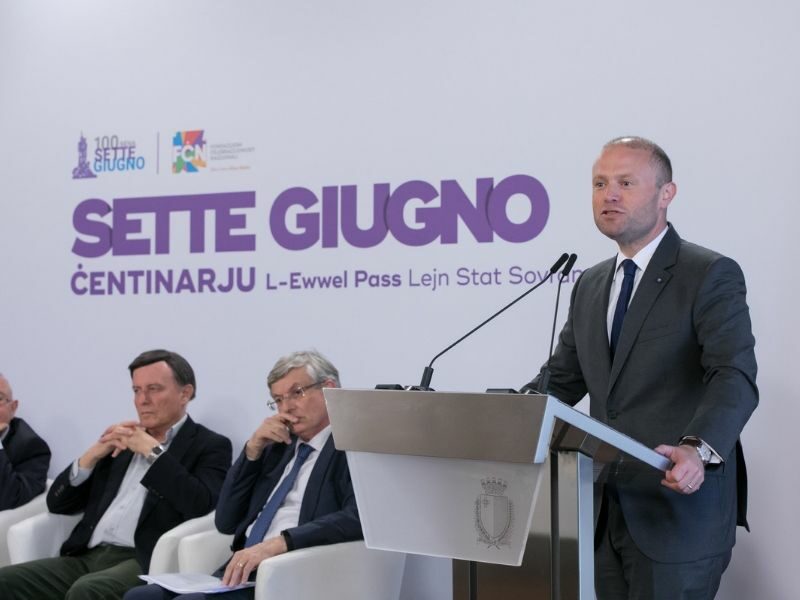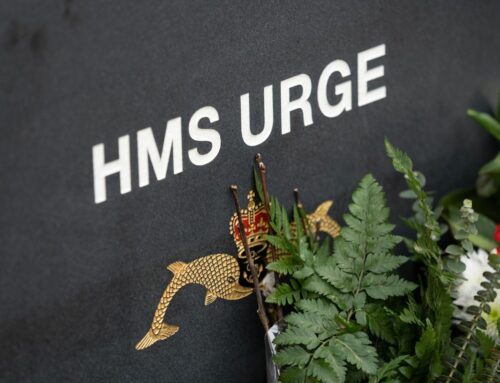High-profile Discussing Commemorative Book Launched for the Special Occasion
June this year marks the centenary of one of the most defining moments from recent Maltese history – the ‘Sette Giugno’ riots.
The anniversary commemorates the events which occurred around June 7, 1919, in the aftermath of World War I – when, following a series of riots by the Maltese population, British soldiers fired into the crowd, killing four civilians.
A symposium launching a commemorative book, titled ‘Sette Giugno, Ċentinarju – L-Ewwel Pass Lejn Stat Sovran’, took place on Tuesday, 4 June at Auberge de Castille in Valletta – under the patronage of Prime Minister Joseph Muscat.
This is the latest in a series of initiatives by government agency Fondazzjoni Ċelebrazzjonijiet Nazzjonali (FĊN) aimed to mark historical anniversaries of national and international importance.
Written in Maltese and edited by Prof. Raymond Mangion, the book, published by FĊN, features a number of articles by experts analysing the cause and effect of these historical riots and their impact throughout the years.
Prof. Mangion, said he is proud of this publication. “A book is something that is here to stay. The world of print, as well as books in general, are immortal. A book is an everlasting memory.”
A group of prominent speakers sitting on a panel – including author and academic Godfrey Pirotta, philosopher, author and poet Joe Friggieri, MEP and former prime minister Alfred Sant and former European Commissioner for Health and Consumer Policy Tonio Borg – discussed some of the original writings featured in the book.

Prof. Friggieri said: “In order to understand the importance of this date, we need to look at what led to it and what followed. Self-government was an immediate consequence. We wanted to be independent and Malta got its Constitution.”
Prof. Pirotta said today we were discussing what was not discussed 100 years ago – a situation that needed an immediate remedy. “This was a huge crisis, as the UK government did not know what to do. The leaders of the time were the ones to change Malta’s economy. They set the foundations for Malta to develop, have its own government and start a democracy.”
Dr Sant said we needed to see what was happening in Malta now, as things are not much different than they were 100 years ago. “We need to focus on the essence of society. Malta was inundated by foreigners at the time of the Knights, just as it is now. The foreign influence did affect what happened on 7 June, 1919. The Brits were being paid five times as much as the Maltese. This led to the strikes by the trade unions, which then initiated the General Workers’ Union.”
Dr Borg said the riots were not just bread riots. “The biggest political issue was that two years down the line we had our own government.”
Addressing participants at the end of the symposium, Dr Muscat said he had always been very curious about ‘Sette Giugno’. “I was always fascinated by how the victims, the common people, were the ones who suffered. I am proud and pleased to be able to gain more knowledge and pass on what I have learnt today. This book will enlighten the Maltese people as to what happened on that fateful day.”
Those wishing to take part in ongoing activities marking ‘Sette Giugno’ can visit an exhibition by Heritage Malta, in collaboration with the House of Representatives, titled ‘Culhat Al Belt’, on display until Wednesday, 31 July at the Parliament building, Valletta; and the musical ‘VII (Sette)’ by Teatru Malta, with performances on 7, 8, 9, 14, 15 and 16 June at Fort St Elmo, Valletta. For tickets, visit https://www.kultura.mt/en/events/vii-sette-Mzc2.




